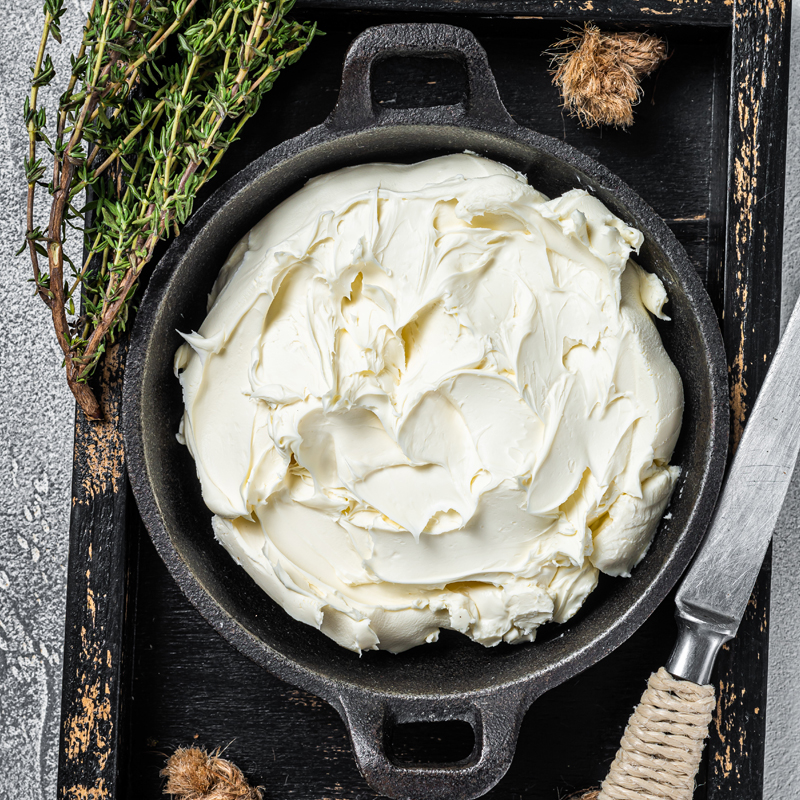
100 gr |
-- |
|
|---|---|---|
| Carbohydrate (gr) | 15.04 |
4928.47 |
| Protein (gr) | 3.59 |
1176.23 |
| Fat (gr) | 12.46 |
4083.43 |
| Fiber (gr) | 1.36 |
445.97 |
| Cholesterol (mg) | 14.64 |
4795.8 |
| Sodium (mg) | 325.27 |
106557.75 |
| Potassium (mg) | 392.16 |
128471.4 |
| Calcium (mg) | 78.15 |
25603.27 |
| Vitamin A (mg) | 46.04 |
15084.01 |
| Vitamin C (mg) | 6.16 |
2019.31 |
| Iron | 0.62 |
203.1 |
Mascarpone is a unique Italian soft cheese, renowned for its rich and creamy texture. With an exceptionally high-fat content, it serves as a cornerstone ingredient in desserts like tiramisu, where its luxurious smoothness enhances both flavor and mouthfeel.
Mascarpone cheese calories are 429 calories per 100 grams.
Mascarpone cheese is made by curdling cream with an acid, such as lemon juice or citric acid. Unlike aged cheeses, it requires no maturation, giving it a fresh and mild taste. Its creamy, slightly sweet profile makes it versatile for both sweet and savory dishes.
Mascarpone is calorie-dense due to its high-fat content, typically containing:
While it provides small amounts of calcium and vitamin A, its high calorie and fat content make it best consumed in moderation.
Desserts:
Savory Dishes:
Baking:
Mascarpone is often compared to other soft cheeses like cream cheese, ricotta, or crème fraîche. Its unique qualities include:
Mascarpone cheese is a culinary gem that brings indulgence to every dish it graces. Whether used in the iconic tiramisu or as a creamy addition to savory recipes, its rich texture and mild flavor make it a favorite among food enthusiasts worldwide.